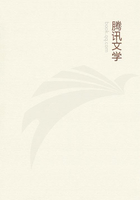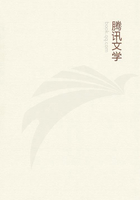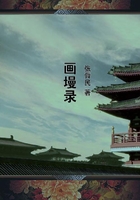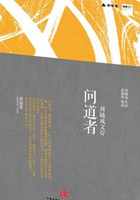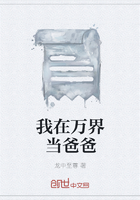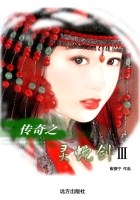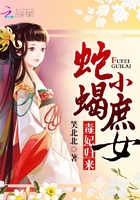If this patient had possessed the auditory type of imagination from the start, it is evident that the injury, whatever it was, to his centres for optical imagination, would have affected his practical life much less profoundly.
"The auditory type," says M.A.Binet, " appears to be rarer than the visual.Persons of this type imagine what they think of in the language of sound.In order to remember a lesson they impress upon their mind, not the look of the page, but the sound of tile words.They reason, as well as remember, by ear.In performing a mental addition they repeat verbally the names of the figures, and add, as it were, the sounds, without any thought of the graphic signs.Imagination also takes the auditory form.'When I write a scene,' said Legouvé to Scribe, 'I hear; but you see.In each phrase which I write, the voice of the personage who speaks strikes my ear.'Vous, qui êtes le théâtre même, your actors walk, gesticulate before your eyes; I am a listener, you a spectator.' -- ' Nothing more true,' said Scribe; 'do you know where I am when I write a piece? In the middle of the parterre.' It is clear that the pure audile, seeking to develop only a single one of his faculties, may, like the pure visualizer, perform astounding feats of memory -- Mozart, for example, noting from memory the Miserere of the Sistine Chapel after two hearings; the deaf Beethoven, composing and inwardly repeating his enormous symphonies.On the other hand, the man of auditory type, like the visual, is exposed to serious dangers; for if he lose his auditory images, he is without resource and breaks down completely.
"It is possible that persons with hallucinations of hearing, and in- dividuals afflicted with the mania that they are victims of persecution, may all belong to the auditory type; and that the predominance of a certain kind of imagination may predispose to a certain order of hallucinations, and perhaps of delirium.
"The motor type remains -- perhaps the most interesting of all, and certainly the one of which least is known.
Persons who belong to this type make use, in memory, reasoning, and all their intellectual operations, of images derived from movement.In order to understand this important point, it is enough to remember that 'all our perceptions, and in particular the important ones, those of sight and touch, contain as integral elements the movements of our eyes and limbs; and that, if movement is ever an essential factor in our really seeing an object, it must be an equally essential factor when we see the same object in imagination' (Ribot). For example, the complex impression of a ball, which is there, in our hand, is the resultant of optical impressions of touch, of muscular adjustments of the eye, of the movements of our fingers, and of the muscular sensations which these yield.
When we imagine the ball, its idea must include the images of these muscular sensations, just as it includes those of the retinal and epidermal sensations.
They form so many motor images.If they were not earlier recognized to exist, that is because our knowledge of the muscular sense is relatively so recent.In older psychologies it never was mentioned, the number of senses being restricted to five.
"There are persons who remember a drawing better when they have followed its outlines with their finger.Lecoq do Boisbaudran used this means in his artistic teaching, in order to accustom his pupils to draw from memory.He made them follow the outlines of figures with a pencil held in the air, forcing them thus to associate muscular with 'visual memory.Galton quotes a curious corroborative fact.Colonel Moncrieff often observed in North America young Indians who, visiting occasionally his quarters, interested themselves greatly in the engravings which were shown them.One of them followed with care with the point of his knife the outline of a drawing in the Illustrated London News, saying that this was to enable him to carve it out the better on his return home.In this case the motor images were to reinforce the visual ones.The young savage was a motor....When one's motor images are destroyed, one loses one's remembrance of movements, and sometimes, more curiously still, one loses the power of executing them.Pathology gives us examples in motor aphasia, agraphia, etc.Take the case of agraphia.
An educated man, knowing how to write, suddenly loses this power, as a result of cerebral injury.His hand and arm are in no way paralytic, yet he cannot write.Whence this loss of power? He tells us himself: he no longer knows how.He has forgotten how to set about it to trace the letters, he has lost the memory of the movements to be executed, he has no longer the motor images which, when formerly he wrote, directed his hand...
.Other patients, affected with word-blindness, resort to these motor images precisely to make amends for their other deficiency....An individual affected in this way cannot read letters which are placed before his eyes, even although his sight be good enough for the purpose.This loss of the power of reading by sight may, at a certain time, be the only trouble the patient has.Individuals thus mutilated succeed in reading by an ingenious roundabout way which they often discover themselves: it is enough that they should trace the letters with their finger to understand their sense.
What happens in such a case? How can the hand supply the place of the eye?
The motor image gives the key to the problem.If the patient can read, so to speak, with his fingers, it is because in tracing the letters he gives himself a certain number of muscular impressions which are those of writing.In one word, the patient reads by writing, (Charcot): the feeling of the graphic movements suggests the sense of what is being written as well as sight would."

